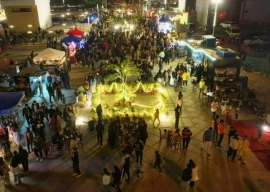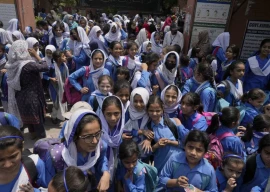
Gilgit-Baltistan is all set to go to polls on November 15, 2020, to elect the candidates of the 24-member Gilgit-Baltistan Legislative Assembly (GBLA) for the next five years. The unprecedented attention that G-B’s upcoming election has been receiving from the leadership of the mainstream political parties of the country has tremendously added to the election frenzy in the region. Unsurprisingly though, all political parties going to the ballot in G-B are predominantly resorting to the prospective provisional provincial status for the G-B province, for gaining political mileage in the election. The Prime Minister of Pakistan, Imran Khan, during his visit to Gilgit on November 1, 2020, to celebrate the 73rd Independence Day of G-B, also reassured unveiling the details of the provisional provincial status that is to be granted to G-B after the elections.
While it remains to be known as to what exactly the provisional provincial status for G-B may entail, the response of the residents of G-B with respect to the overture is divided where a fairly vast segment of the populace tends to believe that the overture may be more of a political stratagem around elections rather than something that would satiate the longstanding demands for constitutional and political rights of the people of G-B. But what is known for sure is that this trust deficit amongst the residents of G-B stems from a deep sense of political deprivation entrenched in the region over the years. Contrary to the aspirations of the people of G-B — who have been demanding, for decades, a constitutionally backed provincial status for the region that commits to bringing the politically deprived province on a par with the rest of Pakistan in all spheres, including social, political and economic — the area has been administered largely through ad hoc based presidential orders, the latest being the Gilgit-Baltistan Order, 2018.
Having said that, the Gilgit-Baltistan Order, 2018 proved, in many ways, to be very consequential for G-B’s struggle to find its place in the Constitution of the pure land. First, this order caused the G-B’s constitutional conundrum to be pitched to the highest level of Pakistan’s judicature as it was challenged in the Supreme Court of Pakistan when it was annulled by the Supreme Appellate Court, the apex court of G-B. The Supreme Court of Pakistan, in its landmark decision dated January 17, 2019, in the case, restored the Gilgit-Baltistan Order, 2018 and directed the federal government to treat the residents of the region the same way as the citizens of any other part of the country. This verdict from the Supreme Court of Pakistan serves as a strong legal base for any prospective act of parliament including constitutional amendments aimed at granting political and constitutional rights to G-B.
Secondly, by maintaining the case, the apex court ruled for the first time in the judicial history of Pakistan that the jurisdiction of the Supreme Court of Pakistan extends to G-B as well. The Supreme Court of Pakistan, in its verdict, further observed that it was strongly committed to serving the rights and liberties of all the people, and those of the people of G-B made no exception for the court.
Thirdly, the Gilgit-Baltistan Order, 2018, also empowered the GBLA by transferring several important subjects of legislation including tourism, hydropower and minerals from the G-B Council which is represented by non-elected members.
It is high time for the federal government to mull over pragmatically addressing G-B’s constitutional enigma, through an act of parliament or constitutional amendment, so that the decades-old disenfranchisement of the people of G-B comes to an end. The deep sense of political deprivation that prevails amongst the residents of G-B can be fairly gauged from the phrase “Sar Zameen e Bai Aayeen (the land without a constitution)” which the people of G-B usually use to refer to the constitutional enigma the region faces. G-B represents the area of Pakistan which liberated itself from the Dogra rule in 1947 through an armed struggle and acceded unconditionally to Pakistan with aspirations to become an integral part of the country. Yet it still continues to struggle in the constitutional quagmire even after more than 73 years of its independence.
Published in The Express Tribune, November 10th, 2020.
Like Opinion & Editorial on Facebook, follow @ETOpEd on Twitter to receive all updates on all our daily pieces.


1734594165-0/Untitled-(60)1734594165-0-165x106.webp)


1734591991-0/Untitled-design-(52)1734591991-0-165x106.webp)






1734468458-0/Copy-of-Untitled-(50)1734468458-0-270x192.webp)

1734511806-0/Untitled-design-(5)1734511806-0-270x192.webp)





COMMENTS
Comments are moderated and generally will be posted if they are on-topic and not abusive.
For more information, please see our Comments FAQ